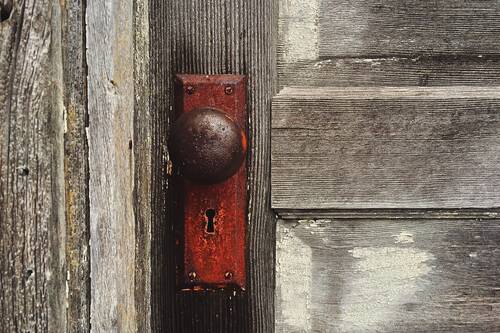opening doors
02/18/2022 09:21:36 AM
Rabbi Boris Dolin
| Author | |
| Date Added | |
| Automatically create summary | |
| Summary |

Synagogue board meetings were never designed to be the most religious of experiences. Among other topics, we often discuss the exciting world of budgets and finances, program planning and membership, and of course the many complicated issues and challenges which confront any community. Of course we know that no community can function without a group of people making important decisions and visioning for the future. Yet we also know that even this most practical aspect of community life also serves a very important spiritual purpose and is symbolic of the values and vision that the community holds close.
This is why in many liberal synagogues a blessing is said before board meetings, “sanctifying” even the most seemingly non-religious of events: Baruch atah adonai eloheinu melech ha’alom, asher kidshanu bemitzvaotav vitzivanu la’asok b’tzorchei tzibur. Blessed are you God, ruler of the universe, for commanding us to busy ourselves with the needs of the community. This blessing serves as an important reminder that even the most business oriented of gatherings should be focused on creating more holiness, on strengthening relationships and that no matter how tough the discussions, the focus and goal is to always serve the needs of the community.
The Hebrew word for community that is used in this prayer, tzibur, also holds in its letters a very important message about inclusion and diversity. The first letter, the tzaddi, symbolizes the tzaddikim, the most holy and righteous among us (don’t worry, we all are there at least on some days). The bet symbolizes the beinoni--the “average” or “in between” person, and the resh is for the rasha, the wicked, or more realistically those people who have room for improvement. A tzibur, a community must include all these kinds of people, even if we are not sure how they fit into the mix.
Rashi makes an interesting connection with the diversity of community and the mix of incense for the mishkan which is mentioned in this week’s Torah portion. We read: “God said to Moses, take the herbs stacte, onycha and galbanum-these herbs together with pure Frankincense; let there be an equal part of each”(Exodus 30:34). Scholars have been able to identify these herbs and even predicted the aroma, and they say of all of the herbs, galbanum had a specifically strong and unpleasant smell. Yet even this least sweet of the smells was necessary for the mix of incense--that the mysterious mix of spices in the mishkan and later the Temple must also include even those which are not the most agreeable.
According to Rashi, the same mix is necessary as we think about how best to build community; that communities are made up of a variety of people, not only the most flawless and perfect. This does not mean that we need to condone unethical or cruel acts in our community, or that we should accept those who cause pain, but it means that we need to try to find a way to allow everyone, all of the relationships we form, both good ones and challenging ones, make us even better people. According to Rashi, even the stinky galbanum when mixed with the others scents, only serves to make the whole experience of the incense stronger.
This is the time of year when we make our way out of the darkness of winter and into the growth and changes of spring. In a few weeks, we will celebrate Purim and open our hearts to the joy and silliness of life. Then, a few weeks later, we can look forward to the Pesach seder, a ritual which serves as both a celebration of rebirth and also a retelling of the story of our people. It is during Pesach that we again are reminded about diversity and community. Rabbi Shlomo Riskin writes about the ritual of opening the door for Elijah near the end of the Pesach seder as the ultimate lesson about how we must all remain open to each other and to the blessings that all our relationships can bring.
As my children have pointed out before, if Elijah is said to visit every Jewish home during the seder, his “magical” powers and superhero speed should mean that he does not need to have any doors opened for him to enter a home! But on a deeper level, the door is not for Elijah, it for us. It is a reminder that the true lesson of freedom and community is that we need to constantly open our doors to others, to be welcoming and accepting of those around us who are most different and even the most challenging. At the seder table, as in our community, there is always room for more people, for more learning, and for more growth.
Congregation Dorshei Emet - 18 Cleve Rd., Hampstead, QC, H3X 1A6 - 514-486-9400
Home - About Us - Contact - Disclaimer
Privacy Settings | Privacy Policy | Member Terms
©2025 All rights reserved. Find out more about ShulCloud



